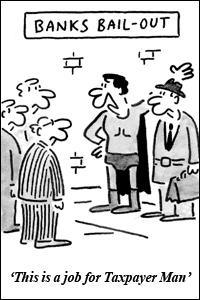Run with Eric:
Finance
A predictable apology and some other words

World Cup venue for sale at any price

Transfer watch

Observer observers need to look beyond sentiment

Burn the trees! Kill the planet! Blame the internet!
Students to pay the price of recession
And the winner is... Manchester United
2012 Olympics far from a private affair

Football - the gentlemen's game
Apocalypse When?

Parental Advisory: Explicit Content
The Blog That Ate Everything

Olympic success, police brutality and more pointless scientific research

Some epic blogging from across the sea

